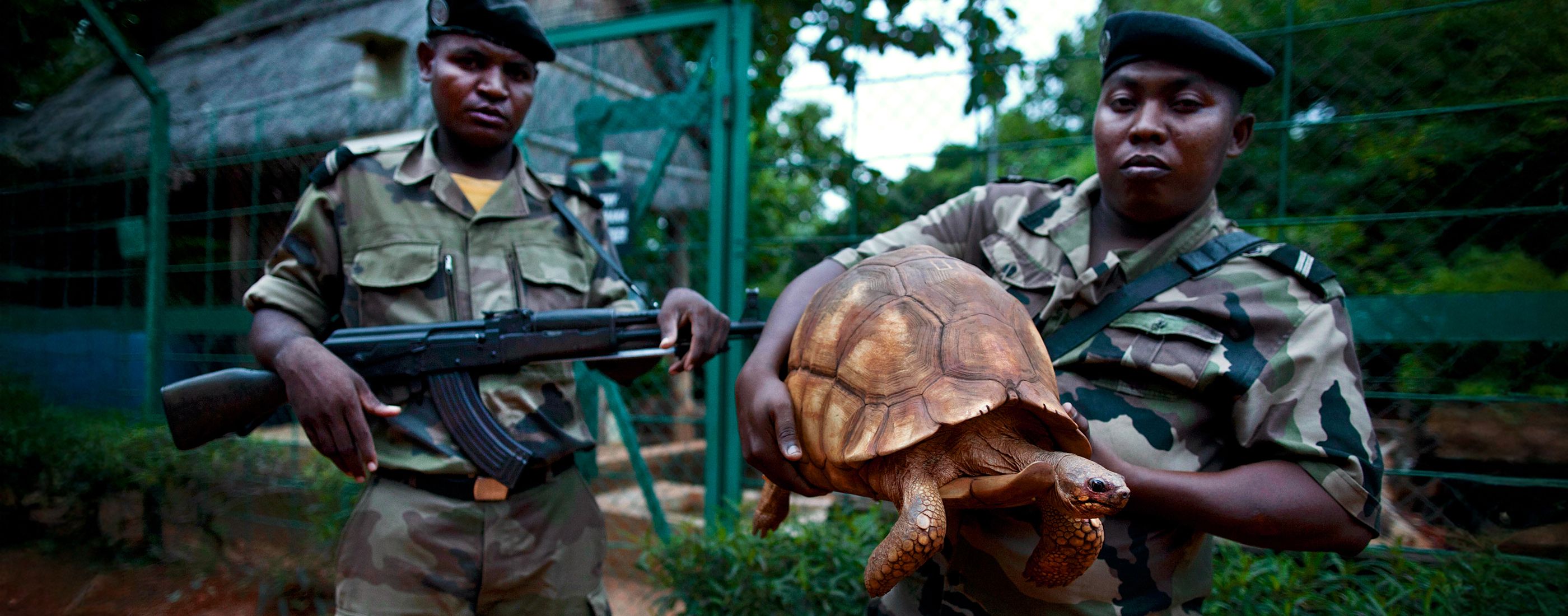
Ploughshare Tortoise
STATUS
Ongoing / Partner Program
Region
Madagascar
Protected Species
Ploughshare Tortoise
Astrochelys yniphora
critically endangered
About the Program
For more than a decade, the Turtle Conservancy has been collaborating with Durrell Wildlife Conservation Trust in Madagascar to protect the most endangered tortoise species in the world, the Ploughshare Tortoise (Astrochelys yniphora), also known locally as Angonoka. The species is only found in a tiny area of Madagascar in the dry forests of Baly Bay National Park, established in 1977 to protect the species. “Ploughshare” gets its name from the plough-shaped extension on the front of its shell. During courtship and mating, the tortoises—particularly males—use this projection to fight their opponent or to submit the female. Their unique shell makes them highly desirable to wildlife traffickers, who smuggle the Ploughshares out of Madagascar for the illegal pet trade.
Help us raise funds to help this important initiative
Fundraising Goal: $100,000
To support operation of the breeding facility
Donate Now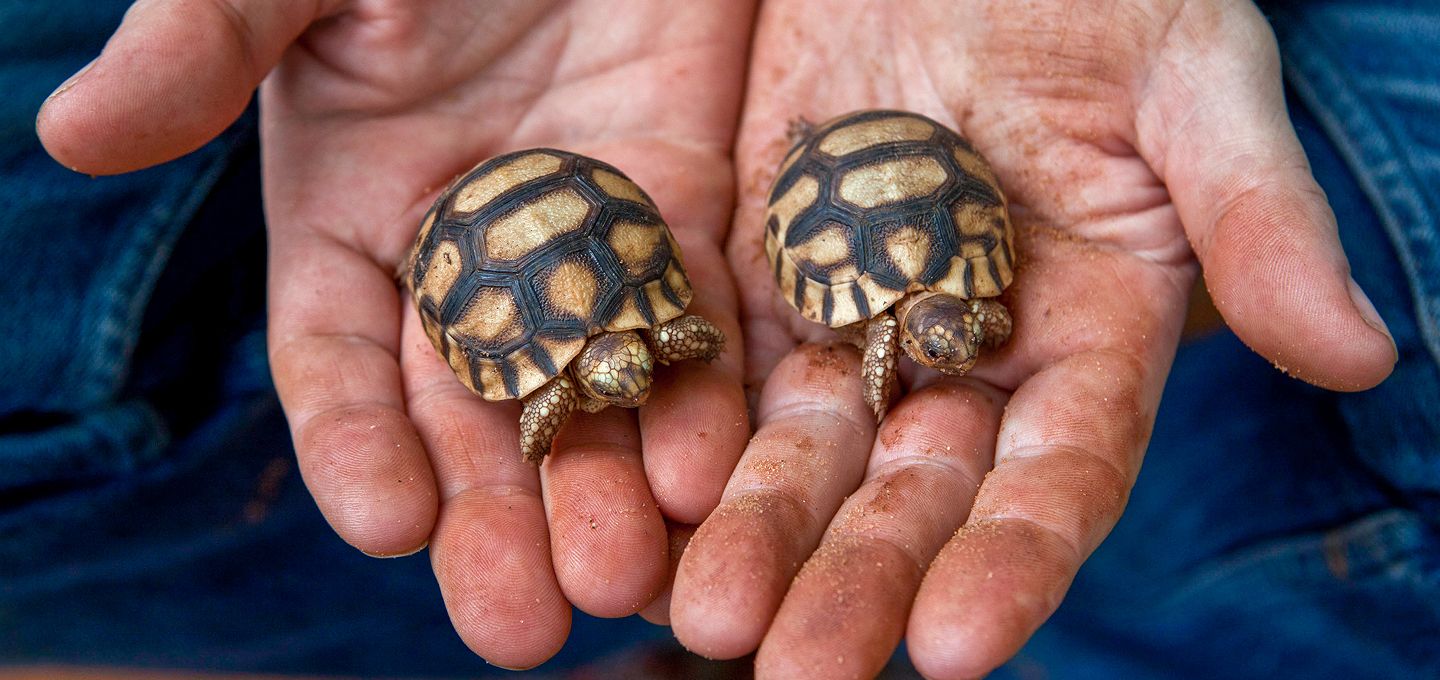
Because of their unique appearance, poaching for the pet trade—particularly in Asia—is the biggest threat for the Ploughshare Tortoises. One individual can be worth thousands of dollars on the black market. In the past decade, remaining populations of these turtles have been almost completely depleted by poachers. Habitat loss due to agriculture and wildfires remain an important threat for the last remaining Ploughshares left by wildlife traffickers.
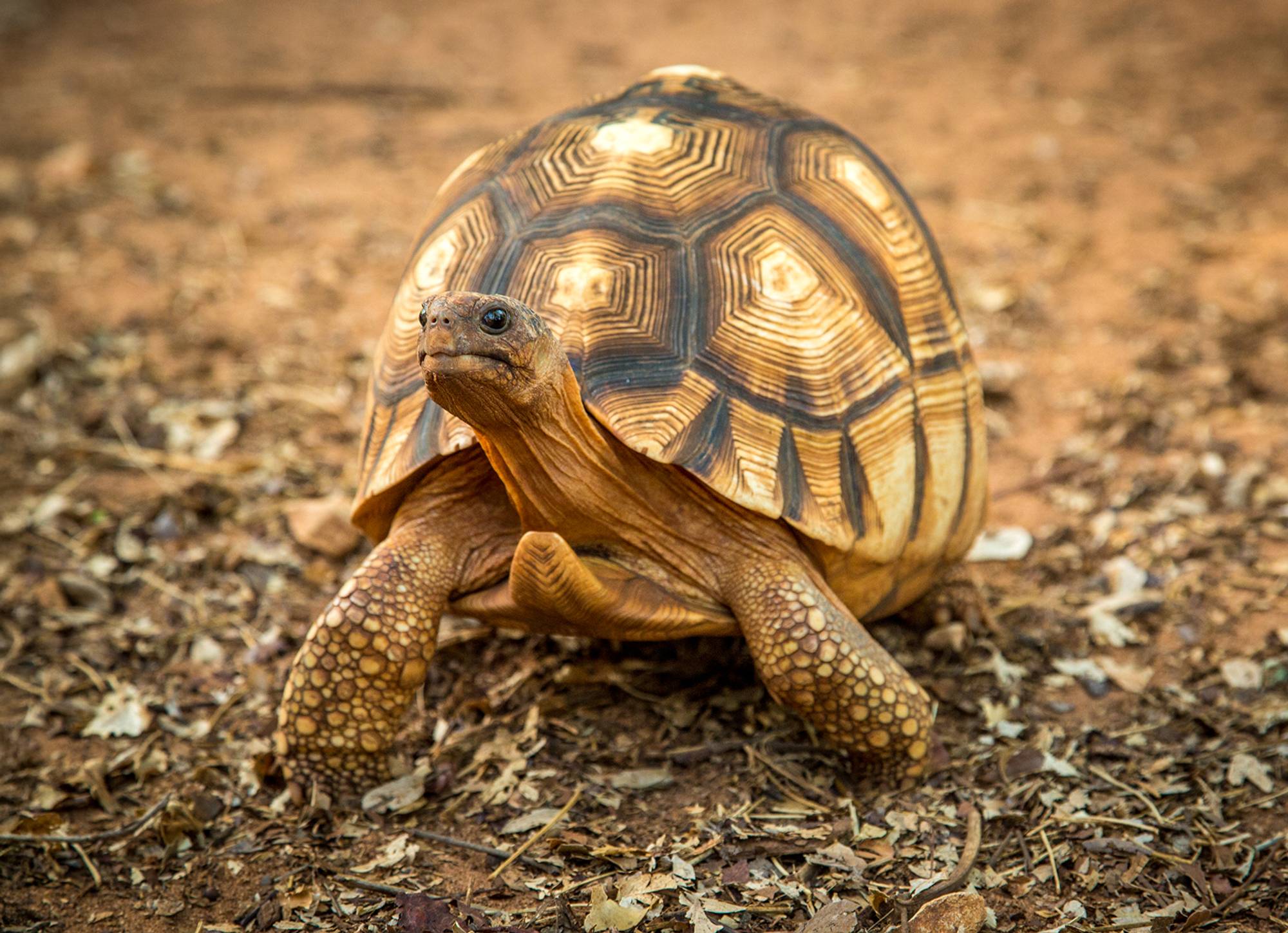
A captive bred Ploughshare (Astrochelys yniphora) at the breeding center managed by Durell
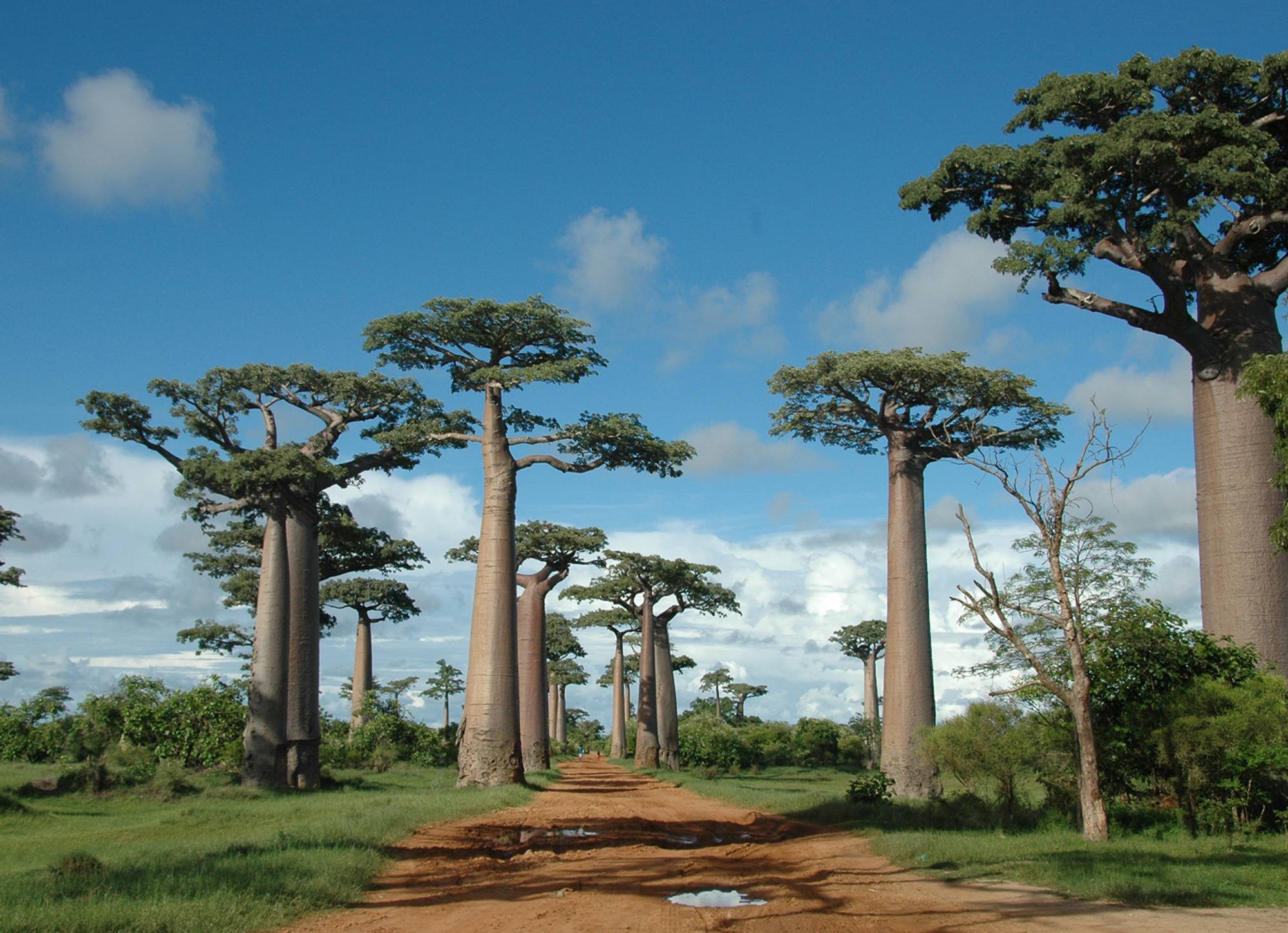
Madagascar is inhabited by unique ecosystems and species with a high rate of endemism
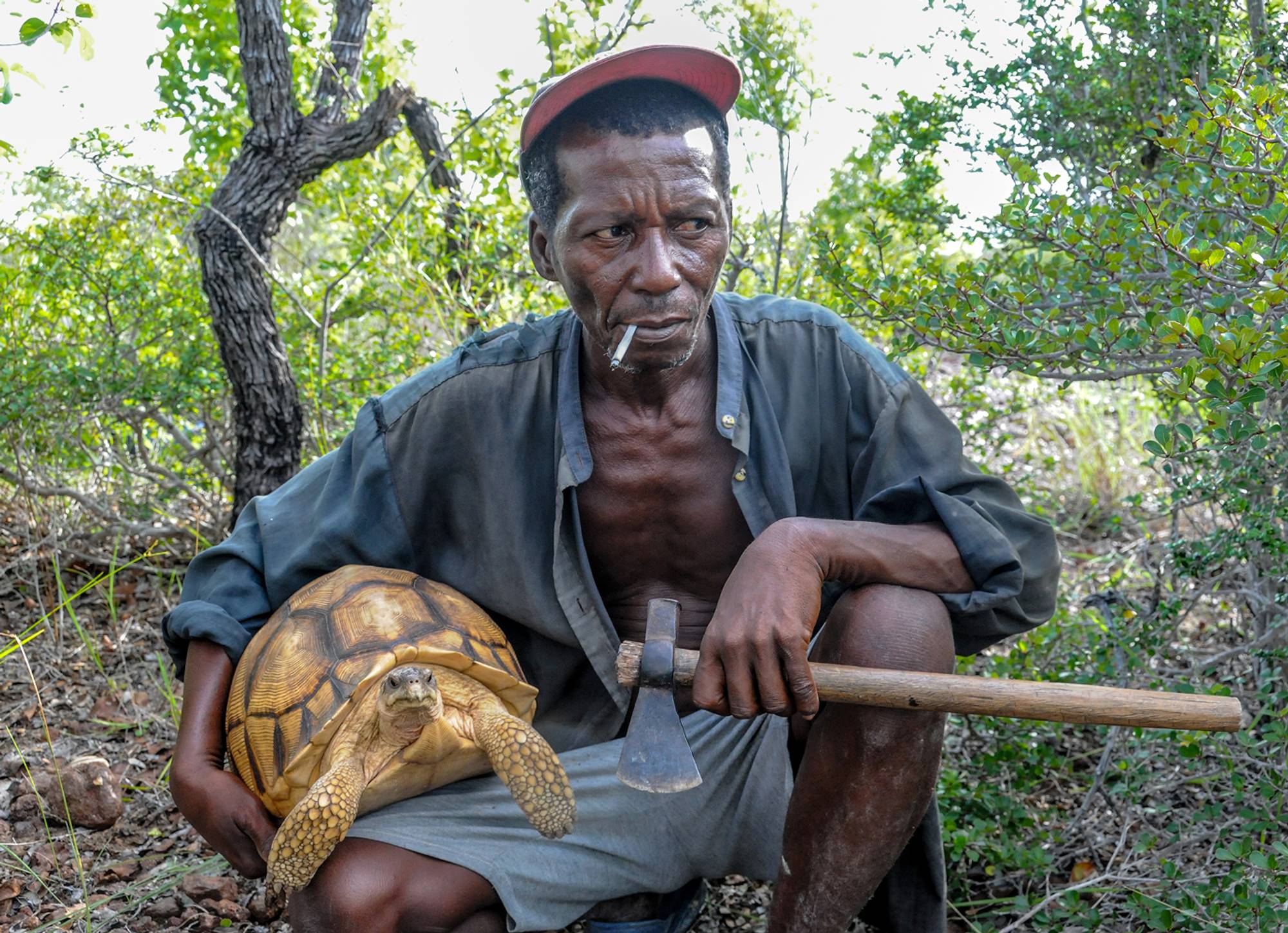
Local Malagasy with a Ploughshare Tortoise
How we protect the species
The Turtle Conservancy engages in the education of local communities and in animal marking to help reduce—and ultimately eliminate—illegal poaching of Ploughshare Tortoises. We support the operation of the breeding center managed by Durell in Ampijoroa, where young tortoises are produced. This program was the first to successfully breed Ploughshares in captivity, as we continue to breed them at a breeding center in Madagascar, under the protection of armed guards. Releasing tortoises has been paused due to the continued threat of poaching, but the captive population continues to grow. The program also supports anti-poaching patrols that work around Baly Bay National Park, where the small population of wild tortoises remain, with staff engraving their shells to discourage poachers. The Turtle Conservancy also collaborates with local authorities in order to protect habitat, enforce law and controls, and monitor illegal trade activities throughout the world.











